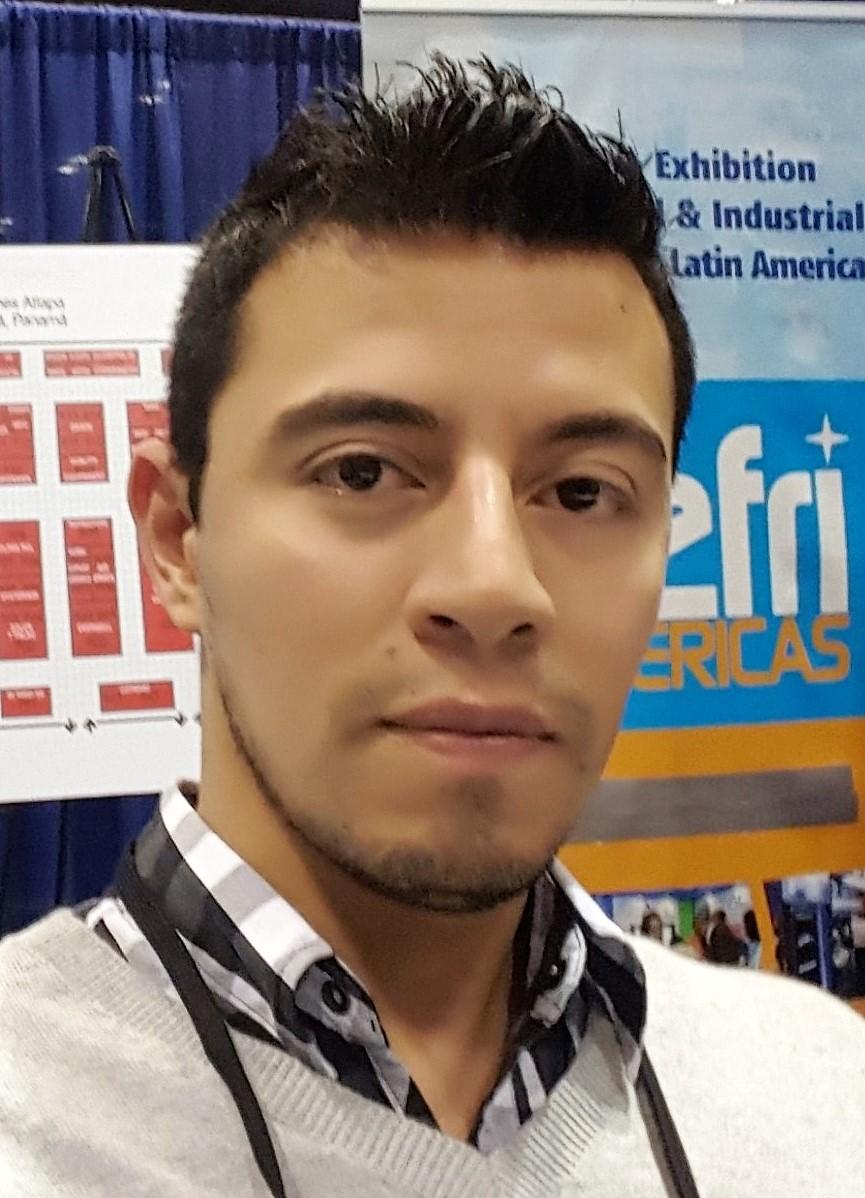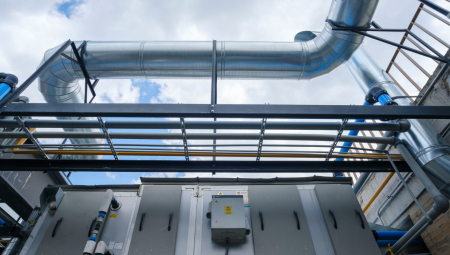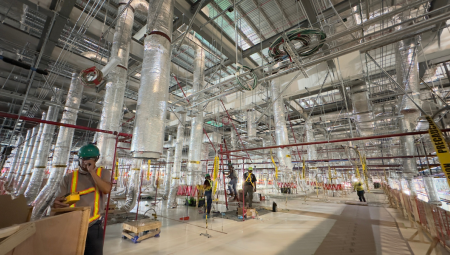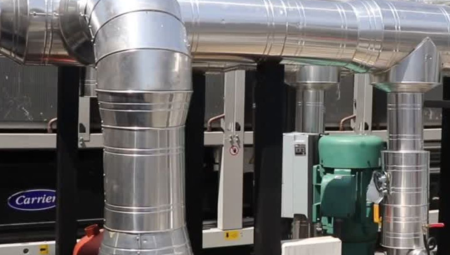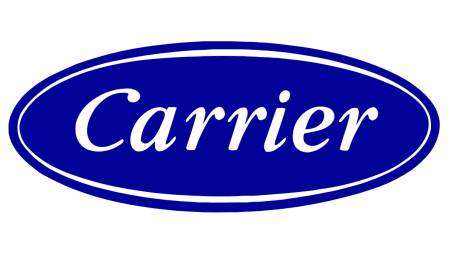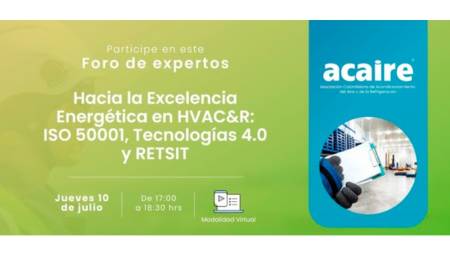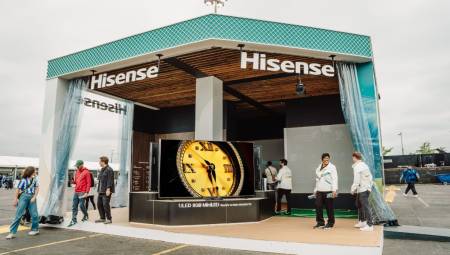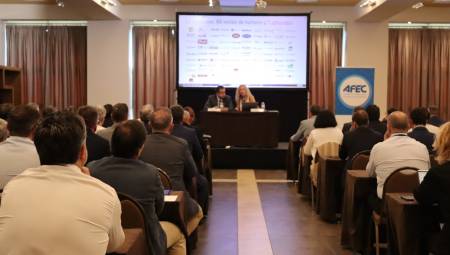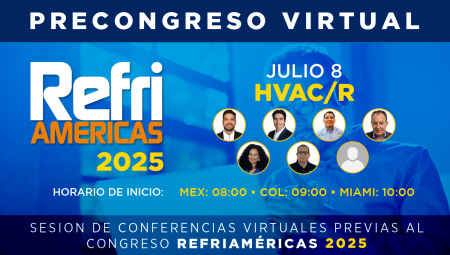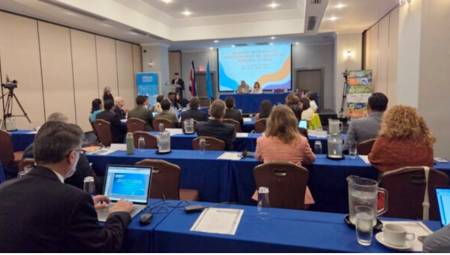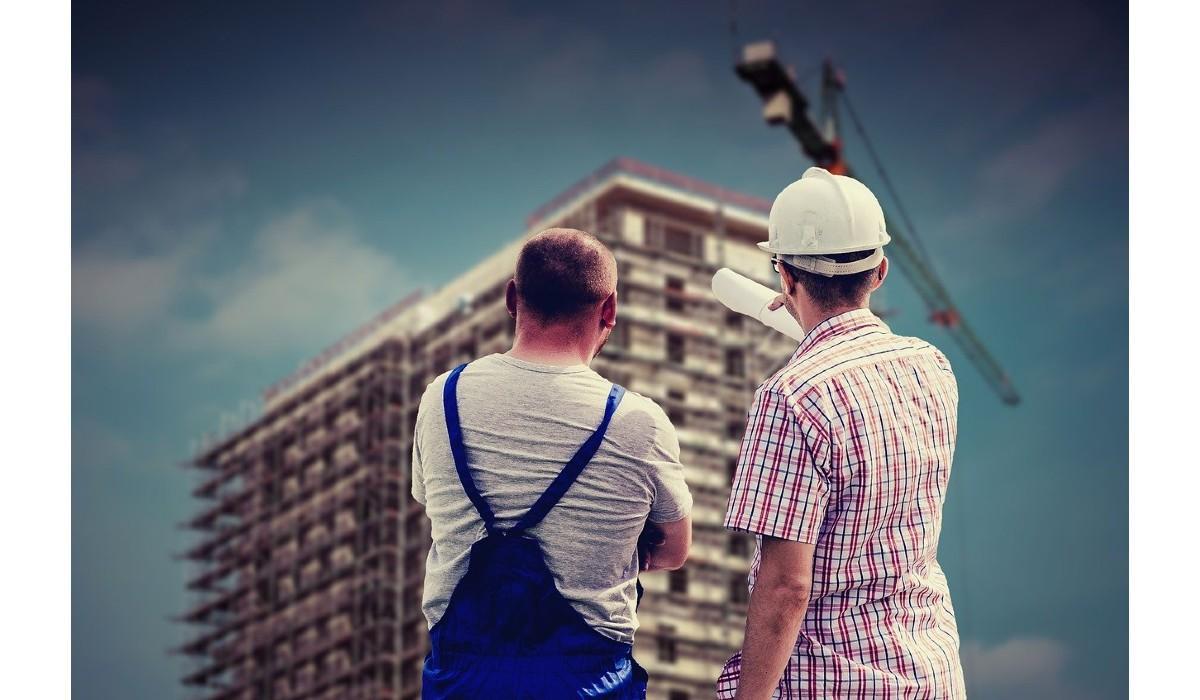 Training and training in thermal engineering, where the fundamentals for designing, installing and operating air conditioning systems are found.
Training and training in thermal engineering, where the fundamentals for designing, installing and operating air conditioning systems are found.
By Eng. Camilo Botero*
When I teach a subject related to thermal engineering, either in a university, guild, company, or to a student in a personalized way, I usually place them at the level of conceptual complexity, in which I will place my academic discourse:
Level I: It is the paradise of the "chambonería" (in which of course I am never), which consists of using very primary calculations, which almost always lead to errors in the air conditioning installations and to illustrate the subject, let's imagine the "chambón" of turn, measuring an area with steps and says: they are 10x10 = 100 m2 and from my "experience" 20 m2 / TR is appropriate here; therefore let's place 5 TR, what does that go with!!!
Level II: As in general, the theoretical calculations of calculation of thermal load and those related to thermofluids (air, water, refrigerants, hydrocarbons etc.) are complex, companies of tradition in air conditioning have their educational institutions and excellent didactic material, so that their customers and users can design, install, operate and maintain the systems where their equipment is.
These equations are usually linear, one-dimensional, and steady-state. They are supported by excellent software, based on equations of this level that are too often used incorrectly, for not knowing the complex principles behind the physical phenomena that accompany these processes.
Level III: For this case it is already necessary a knowledge of one-dimensional differential equations in the transitory state, that is, as a function of time. It is used to analyze cooling and / or heating processes of products in tanks, for example, and to find the time constant of the systems to evaluate their capacity against the load they serve. Frequently in my work as a Consulting Engineer,} I am using these equations; its teaching is typical of the universities in the faculties of Mechanical Engineering.
Level IV: Differential equations in 3 dimensions and in a transitory state, which is the responsibility of universities, mainly in their master's and doctoral programs. Although they allow the student to delve into the principles and fundamentals of heat transfer and thermofluids, I do not find it practical for the exercise of the profession in the day to day of the projects, but that does not exempt him from understanding in depth the fundamental principles, which I find is not the case in most projects.
I have been preaching that we must take the Training and Training of our engineers to Level III, because extraordinary changes are coming technologically speaking, and from now on we must analyze how our professional practice will be in the fourth generation of energy conversion, having artificial intelligence as a preponderantly omnipresent factor.
Only the most qualified will be able to adapt to this change and that is achieved through the permanent training of our professionals in applied science and technology. The most prepared in topics such as programming, software development, data analysis, manufacturing in 3D printers, mechatronics etc., will keep their jobs and / or their companies. All those repetitive tasks will be replaced by robots, only the tasks that are not easily defined, will remain.
As I have commented in previous articles, in my specialty, which is Thermal Engineering, I have always been oriented to Training in which I have already turned 52, as well as in my professional practice. I have taught all the subjects of the thermal branch in various national and international universities, as well as multiple conferences on these topics and more recently I have been dedicated in this area to the Diplomas of Air Conditioning and different courses such as Applied Psychrometry, Calculations of Thermal Load, Fluid Mechanics, Commissioning (Quality Assurance) under the ASHRAE standard 202, ASHRAE Standard 55, on Thermal Comfort of people, Cogeneration and Trigeneration, Thermal Districts etc. I estimate that about 3500 engineers and technicians have attended my formal and non-formal courses.
For this I proposed the ICAIRE, (Colombian Institute of Air Conditioning and Refrigeration), which has not yet been consolidated and is indispensable because theoretical and practical training and laboratories are required for teaching, research and evaluation of equipment at a higher level than is being taught in the guild. Currently I started the CBG Academy, oriented to personalized training, with the scheme of "on the job training" of which the magazine ACR had the kindness to present it as news. This training proposal has been well received.
The faculties of Mechanical Engineering must restructure their academic curriculum, incorporating more artificial intelligence, but without forgetting the fundamentals of the laws of nature, mainly in our case the laws of thermodynamics and especially the deep study of the minimization of the generation of entropy, which causes the degeneration of energy and orient towards alternative energies to those of hydrocarbons that have such an impact on heating Globally, several countries are already going towards zero HC, mainly the Nordic countries in Europe.
We must study the Hawking Equation of Entropy (taken from the internet and the book about his biography), to understand how the issue of energy degradation is, in order to try to optimize its optimally efficient use.
Figure 1.
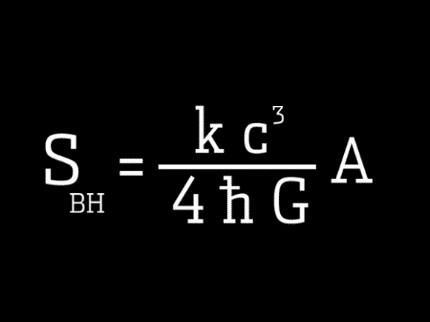
-'S' would refer to entropy (measure of the amount of chaos).
- 'h' alludes to Planck's constant (expounded by the German Max Planck).
- 'G' Newton's constant or universal gravitation.
- 'A' to the area of the event horizon or point of no return beyond which you cannot escape from a black hole.
- 'C' speed of light.
- K' the Boltzmann constant.
- *BH: they are placed in honor of the initials of the surnames of their two inventors.
Parallel to the modernization of the Mechanical Engineering curriculum, in addition to the degree conferred by the respective duly accredited University, there must be a certification process as a specialist in one or more of the multiple disciplines of our guild, as ASHRAE does; I think that an institute like ICAIRE would be competent to give these certifications.
Teaching in our field should promote in students the search for their passion, stimulate their curiosity and encourage their perseverance and it is required to acquire a complete understanding of psychrometric processes, fluid mechanics, the different mechanisms of heat transfer, the behavior of all types of heat exchangers, energy saving equipment and mass and energy balances, using in addition to one-dimensional steady-state equations (Level II) and also mathematical models that incorporate differential equations for transient processes (Level III).
Very important to be able to do simulations for different hours, climates and partial demands. Of course you must have a deep knowledge of control strategies, so that the specialists of this discipline design the appropriate controls.
* Camilo Botero is the current Secretary of the Federation of Ibero-American Associations of Air Conditioning and Refrigeration - FAIAR; he was president of ACAIRE and is president of Camilo Botero Ingenieros Consultores Ltda. He has worked as a teacher in several Colombian universities, guilds and currently in ACAIRE in diploma courses of air conditioning projects, energy efficiency in air conditioning and refrigeration, cogeneration and trigeneration, applied psychometrics, thermodynamics, fluid mechanics, heat transfer and turbomachinery. ([email protected]).


